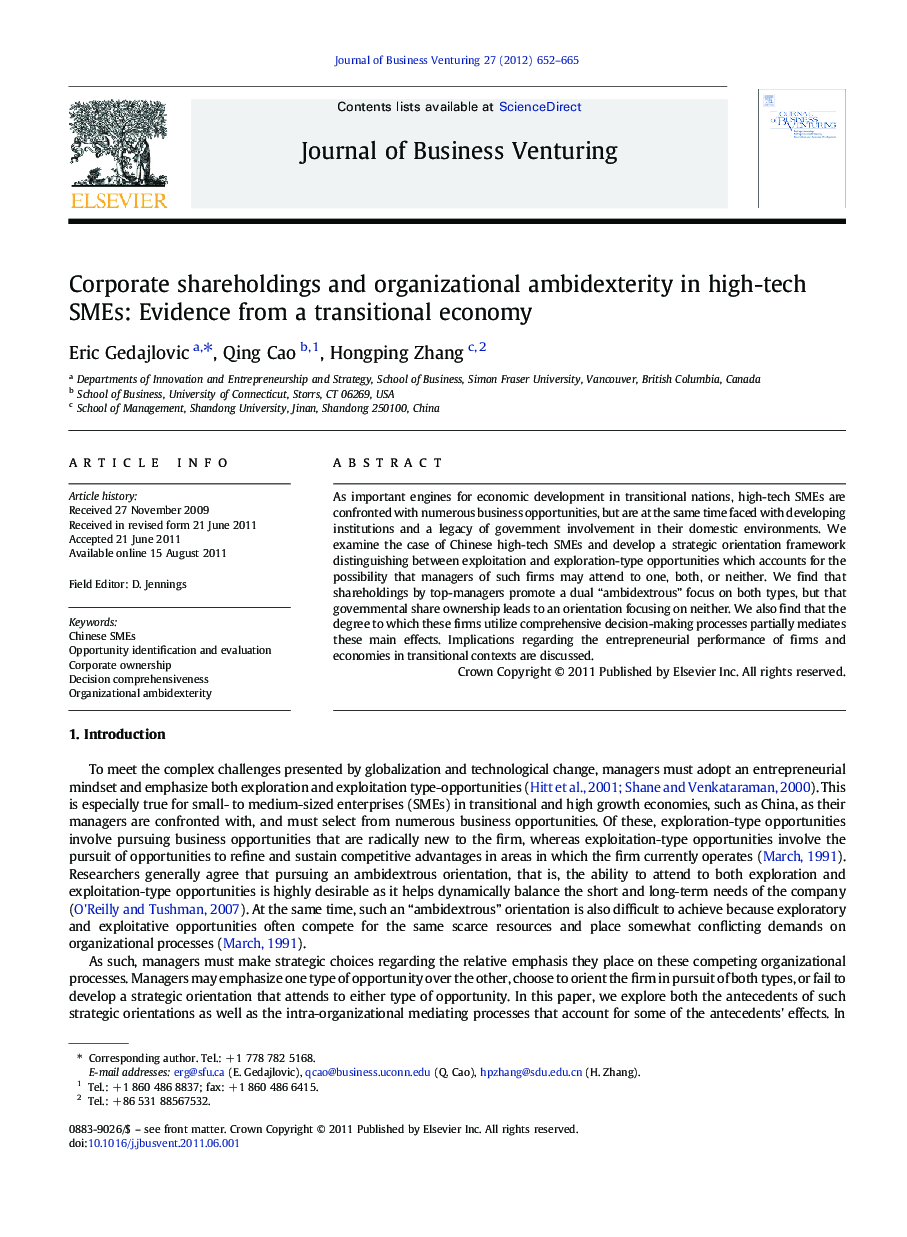| Article ID | Journal | Published Year | Pages | File Type |
|---|---|---|---|---|
| 1019421 | Journal of Business Venturing | 2012 | 14 Pages |
As important engines for economic development in transitional nations, high-tech SMEs are confronted with numerous business opportunities, but are at the same time faced with developing institutions and a legacy of government involvement in their domestic environments. We examine the case of Chinese high-tech SMEs and develop a strategic orientation framework distinguishing between exploitation and exploration-type opportunities which accounts for the possibility that managers of such firms may attend to one, both, or neither. We find that shareholdings by top-managers promote a dual “ambidextrous” focus on both types, but that governmental share ownership leads to an orientation focusing on neither. We also find that the degree to which these firms utilize comprehensive decision-making processes partially mediates these main effects. Implications regarding the entrepreneurial performance of firms and economies in transitional contexts are discussed.
► High-tech SMEs are important engines of growth in transitional economies such as China. ► Confronted with numerous business opportunities, these firms still deal with a legacy of government involvement. ► Managers may attend to either exploitation or exploration-type opportunities, both, or neither. ► Managerial shareholdings promote an “ambidextrous” focus, but governmental share ownership leads to a blurred orientation. ► The degree to which these firms utilize comprehensive decision-making processes partially mediates these main effects.
